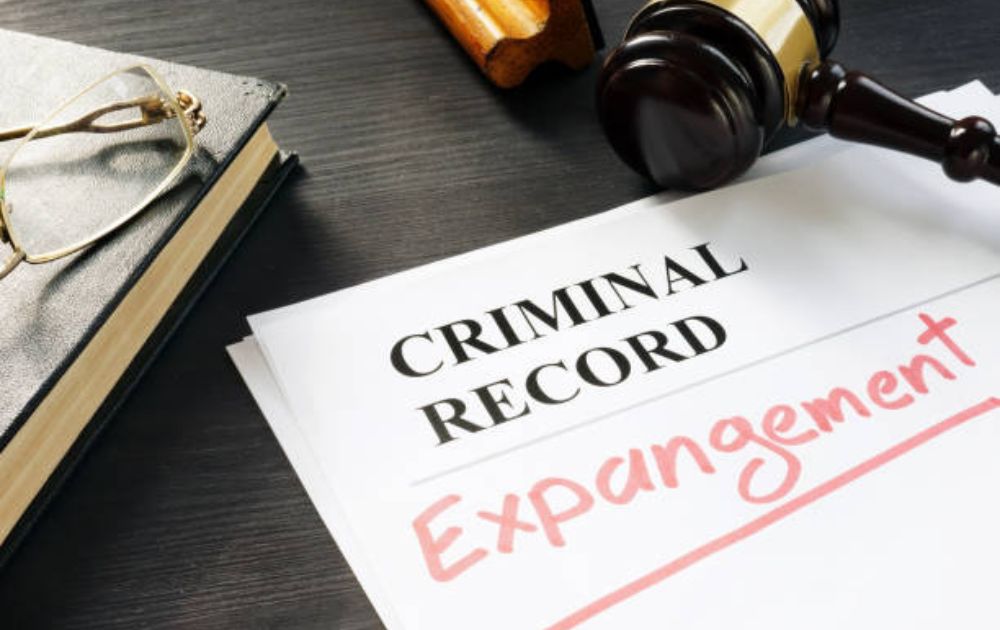






Are you burdened by a public criminal record in Florida and seeking a new start? Sealing or expunging it may be the solution you are looking for.
In Florida, the Florida Department of Law Enforcement (FDLE) plays a vital role in managing criminal records. Individuals with criminal records can clear these through expungement or record sealing.
Doing so can greatly help improve your chances of finding employment, housing, or obtaining loans to name a few examples. Although the processes can be complex and burdensome, expunging or sealing a record can offer a fresh beginning and the opportunity for a better future.
In this article, we'll explore everything you need to know about sealing and expunging records in Florida.

Expungement of criminal records in Florida is a legal process that allows individuals to have specific arrests or non-convictions removed from their records. This process is invaluable for those who want to clear their slate and open doors to new, better opportunities.
Here is a quick overview of the eligibility requirements for expunging a criminal record in Florida:
Record sealing is an alternative option for individuals with a criminal history in Florida. Similar to an expungement, a record sealing restricts access to your criminal record, making it confidential to the public and potential employers.

Understanding the prerequisites to seal a criminal record is crucial. We've outlined the eligibility criteria to ensure your record sealing application succeeds as follow:
Expungement completely destroys the records, erasing them from public view, while sealing restricts access but retains them ‘under seal” by order of the court .
Expungement and sealing both provide privacy, but under certain ‘legitimate criminal justice purposes’ law enforcement can gain access to sealed records, making a choice between the two significant for individuals with criminal histories that qualify for both remedies.
While these are not all the differences and similarities, it is worthy of noting that record sealing provides the same legal benefits as an expungement insofar as the record’s confidentiality and being erased from public view!
See more: Differences between sealing and expungement in Florida

Unlocking a new beginning with Erase the Case in Florida is easier than you think. Whether seeking a fresh start or a better future, understanding these procedures is your first key to success.
Step 1: Determine Your Eligibility
The first crucial step in how to get your record expunged is determining if you meet the eligibility criteria for expungement or sealing in Florida. Click here to find out if you qualify for expungement or record sealing with our free, 100% accurate and automated eligibility test in only 2 minutes.
Step 2: Collect the Necessary Documents and Information
Once eligibility is established, gather all necessary documents and information for the expungement application process. This typically includes court records, arrest records, probation records if applicable, and personal identification.
Step 3: Complete FDLE Application
With the required documentation, Download the application for expungement or sealing as per Florida's legal requirement, and notarize the FDLE application for Certification of Eligibility to Expunge or Seal your case(s).
If you are from Pinellas County, access the forms here.
If you Hire Erase the Case to expunge or seal your record, we provide all the documents needed.
Step 4: Submit to the State Attorney's Office
Send your application to your appropriate county's State Attorney's Office by mail or in person and await their review for ‘Section B’ completion.
Step 5: Forward to FDLE
Submit a fully compliant FDLE Application packet to the FDLE, including the required documents with your application. If approved, FDLE will issue a "Certificate of Eligibility." If denied, FDLE will issue a ‘denial letter.’ If more information is needed, FDLE will mail correspondence reflecting the same.
Because the FDLE can reject an FDLE Application to expunge or seal a record for a myriad of reasons, we strongly encourage you to be represented by counsel before an application is submitted given appeal deadlines can complicate the process to the point of losing out on your one-time shot on goal for your expungement or sealing matter.
Step 6: Prepare "Petition and Affidavit"
Complete a legally compliant "Petition and Affidavit to Expunge or Seal" using your FDLE Certificate of Eligibility.
Step 7: File the Petition
Submit the original petition, affidavit and FDLE Certificate of Eligibility to the appropriate County’s Clerk of the Circuit Court where the case was processed.
Send copies of the filings to the appropriate State Attorney's Office and arresting agency according to the guidelines set forth under Florida Rules of Criminal Procedure 3.692.
Step 8: State Attorney's Response
Depending on the case, the State Attorney's Office may issue a response which could involve an objection that will require a ‘contested’ court hearing. Should that happen, you should without doubt hire a knowledgeable expungement lawyer.
If no objections arise, the Clerk typically forwards the documents to the court, typically resulting in a signed Order Sealing or Expunging the Record within weeks, or a hearing may have to be scheduled, depending on the judge.
Step 9: Processing of Expungement/Sealing Court Order
With 67 different, independent Florida Counties and thus Clerks of Courts, once a petition to expunge/seal is granted and the order signed, you will still be responsible for contacting the Clerk’s Office to make sure the fees and costs have been paid in order to obtain certified copies and erase the case from public view.
The usual expungement process in Florida takes an average of five to seven months , while for others, it can extend over a year. Delays can occur due to varying factors, so patience is essential.
But, by choosing our services, Erase the Case has a proven track record to complete the process in only three to five months from beginning to end, with an average of 90 days total!
The expungement cost in Florida can range from $270 all the way up to $2,500 or more, depending on the complexity of your case. Whether you go through the process on your own and pay only government related costs, or whether you hire the right lawyer, will make a world of difference in time, experience, success, and thoroughness of your expungement
If you hire a lawyer, most lawyers will charge between $749-$2,500 only in legal fees, after which they will charge additional money for costs associated with the expungement process.
However, Erase the Case offers you an affordable, one time flat fee of just $995 that includes everything, including the most complete and fastest process in the State of Florida, all while delivering top-notch quality service, peace of mind, and constant case updates. But don’t take our word for it, check out our boasting excellent verified customer reviews on Shopper Approved and Google Reviews.
Discover the power of expunging and sealing your criminal record with our expert services. We navigate the complex legal process to clear your record and regain control of your life by doing all of the work on your behalf, from beginning to end, while providing you with case updates at every turn.
Here are the top reasons why you should hire us:
Don't let your criminal record continue to impact your future. Initiate the first step towards a clean slate. Contact us today and talk with our expungement attorneys to learn more about our sealing and expunging services in Florida.
We'll walk you through the steps to initiate the expungement process, from determining eligibility to applying to erasing the case from public view, as explained above.
Any criminal charge from A-Z can be expunged as long as you meet the statutory legal requirements. Typically, only cases with non-conviction dispositions, such as dismissals, acquittals, or specific juvenile offenses and misdemeanors, can be expunged in Florida.
Individuals with criminal records in Florida that ended in non-conviction dispositions and have met the waiting period requirements are generally eligible. Find out if you qualify here.
Explore the advantages of expunging your criminal record, including improved job prospects, better wages, and a second chance in life without being haunted by your criminal past again.
In Florida, you're generally allowed only one expungement in your lifetime, however, Erase the Case is proud to boast the most cases sealed under a single petition totalling a whopping 16 cases in a single petition. Maybe a National record? We think so.






















